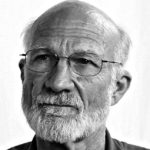Judicially mandated acceptance of homosexuality, and delegitimizing of opposition to it (moving toward across the board prohibition) has continued apace in the summer of 2013, with the Windsor decision in the early summer voiding the Defense of Marriage Act, declaring that Judeo-Christian morality is impermissible “animus,” and the New Mexico Supreme Court in mid-August denying liberty of conscience against facilitating homosexual behavior, holding it to be the price of citizenship for Christian photographer, Elaine Huguenin.
Huguenin, of Elaine Photography in Albuquerque, New Mexico, was haled before the New Mexico Human Rights Commission for declining to photograph a lesbian ceremony in 2006. Despite a polite refusal to participate in a lesbian ceremony, and the fact that the complainant, Vanessa Willock, found another photographer for her ceremony, she filed a complaint, the Human Rights Commission fined Huguenin $6,500 in 2008. The just rendered New Mexico Supreme Court decision relies on the U.S. Supreme Court’s refusal to distinguish between homosexual persons and their conduct in constitutional law. The Alliance Defending Freedom, which defended Huguenin, briefly analyzed the case and its outcome, called the decision a “chilling and unprecedented attack on freedom.”
ADF did note the concurring opinion of Justice Richard C. Bosson at least recognizes the loss of religious and personal freedom, but justifies it as the “price of citizenship.” Bosson said the court’s decision was “sobering,” and that it should move Americans to reflect on the meaning of liberty, equality, and justice, but basically said “the law is the law.” This despite New Mexico’s Religious Freedom Restoration Act, which, like the federal RFRA, requires the least restrictive burden on religious liberty. This means Huguenin has to choose between her obedience to God and her job, unless she wants to face numerous ruinous lawsuits. An appeal may be expected to the U.S. Supreme Court, which may or may not take the case, and if it does, may or may not rule in favor of religious liberty. Anthony Kennedy, who just bitterly attacked Christian morality in voiding the DOMA, likely will decide, but this doesn’t necessarily tell us how he will rule. He also wrote the Lawrence decision, which voided the sodomy laws, but that also includes a note that for persons opposed to sodomy, their beliefs are not “mere trifles” but are the principles by which they guide their lives. The same point was essentially noted as well by Justice Bosson concurring with the ruling against Huguenin.
The average American’s experience of the denial of personal freedom in the interests of homosexual liberation is to have a story such as the one above presented occasionally in a news source. If uninterested (which is probably true of the majority of Americans), such cases are not noted at all, and there is no awareness of the greatest threat to religious and personal freedom of our day (certainly one of the greatest threats to religious freedom in American history). Yet there are numerous cases in many different occupations where a professional worker, merchant, or businessman is required to facilitate homosexual behavior that he or she believes is wrong. This includes a florist in Washington state, a baker in Portland, Oregon, two bed and breakfast establishments in Illinois, a professional counselor in Georgia, an inn owner in Vermont, a tee-shirt company in Kentucky, and doctors in California. The last case, an infamous case of doctors being required to provide insemination to a lesbian couple, despite having a policy against providing this service to unmarried couples in general, had wide ranging implications denying liberty of conscience against facilitating homosexual behavior for anyone serving the public in California, as the Pacific Justice Institute noted in the article provided.
Sadly, the U.S. Supreme Court’s recent Windsor decision, in attacking moral opposition to homosexuality as irrational hate, may well be the template for many courts’ judgments on everything with respect to homosexuality, not just marriage. As noted in an earlier article on the animus standard, the Supreme Court did not really defend the idea that moral opposition to homosexuality is irrational, only establish a legal fiction that it must be irrational because the court chose to say that the “liberty” and “equal protection” of the Fifth and Fourteenth Amendments mandate that homosexuals as a class not be “disadvantaged,” and any justification used for legal inequality is only a pretext for hostility. Thus any legal protection that accommodates the notion that homosexuality is evil will be thrown out as incorporating irrational hate into law. No “rational reason” for opposing homosexual practice exists, because none is allowed. Whatever the special needs of homosexuals, they must be accommodated, in more or less the same spirit as the handicapped are under the Americans with Disabilities Act (ADA), not penalized. A similar argument applied to the drug culture would require all laws against the use of drugs to be declared unconstitutional.
Faithful Christians do face the prospect of becoming an underclass, excluded from business and the professions because of their beliefs. Such a radical change in the (formerly free) world we live in, in which it is legally required that citizens facilitate sin, in which American authority is hostile (however sympathetic individual officials, such as the New Mexico Supreme Court justice, profess themselves to be), in which traditional morality is condemned as immoral by a new morality of “dignity” and “inclusion,” and in which many people do in fact compromise, may leave many Christians confused, unable to formulate their own positions concerning conscientious objection to immoral state and/or professional association requirements. The worst result of this will be if otherwise orthodox Christian believers simply shake their heads at such a radical change, and provide goods and services that facilitate immorality. We can only withdraw so far from the world, but anything that directly facilitates sin is something we cannot engage in regardless of the penalty. This is the clear command of Scripture (e.g., Matt. 18:6-9, and II Cor. 6:17). The early Christians would have understood they could not offer a pinch of incense to the emperor’s statue; and in general Christians have accepted death, imprisonment, or exile if that was the price of obeying God. To compromise rather than take the penalty is first of all sinful, but will also have the effect of changing belief over time with many people (surely an intended effect of legal coercion).
The outcome of the legal struggle over liberty of conscience against facilitating homosexual practice is ongoing and still undecided, but cases have not gone well either in this country or in other western societies. Reasonable accommodation to the religious conscience against homosexuality is not made, or is often inadequate. It is enormously helpful in any struggle to see the light of day at the end of the tunnel, but that is exactly what is not now evident. Eventual accommodation, either in law, or in tacit understandings in practice, will be more likely the more people that refuse to compromise (on homosexuality, and also on other contested moral issues, such as abortion). We should realize that what concessions to the sexual revolution that are made only make the social radicals spearheading the revolution more emboldened and gives authorities less reason for accommodating the religious conscience. But the point of legally recognized conscience objection is to accommodate consciences that simply cannot compromise. The more refusal there is to comply with immoral rules, the more powerful the pragmatic argument for accommodation becomes. But even this is only an added consideration to the absolute, and entirely sufficient consideration that we must obey God, and not facilitate sin, regardless of the penalty of noncompliance or the loss of livelihood in avoiding situations in which sin must be facilitated.





Comment by Sandy Naylor on August 29, 2013 at 4:29 pm
In twenty years, or even ten, will we even be able to read or post material like this?
If you follow a lot of blogs on the Internet, have you ever read comments by people who say “Christians are not persecuted in America”? The fact that so many people actually believe that is pretty frightening.
Comment by Rick Plasterer on August 30, 2013 at 1:01 pm
Sandy,
Liberals deny that religious freedom (for Christians) is under attack by redefining religious freedom to exclude things they don’t like. The basic claim nowadays is that Christian doctrine “harms” homosexuals, and cannot have legal protection. To state what should be obvious, religious freedom (or any kind of freedom) means nothing if it can be set aside when others are offended. In addition to our absolute and primary committment to obey God, we should insist on freedom to speak and live our lives regardless of who is offended.
Rick Plasterer